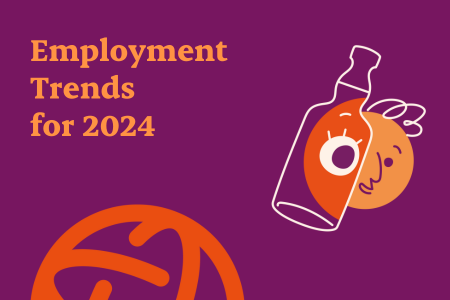In a recent talk at the Share Corporate Governance & HR Conference, the Gravitate HR team delved into the topic of employment trends for 2023 into 2024. Focusing on four areas including navigating the challenges of rising costs to addressing the critical issues of equity, diversity, and inclusion (EDI), this blog provides a concise summary of the insightful discussions that unfolded during this event.
1. Cost of Living and Pay / Rewards
The employment landscape in 2023 has been marked by relentless pressure on pay, as organisations grapple with rising costs, high inflation rates, and the aftermath of widespread industrial actions. Looking ahead to 2024, economic forecasts remain challenging, with the reality being that escalating costs strain both employer and employee budgets. Balancing payroll and other expenses poses significant challenges, impacting individual employees who may bear additional financial burdens. In this environment, attracting and retaining talent becomes crucial. Employers must differentiate themselves by focusing on organisational culture and reputation. The lived experience of employees within an organisation, the positive working environment, and opportunities for development are key factors that contribute to retention. To weather the challenges, organisations need to proactively address the concerns of their workforce, implement support mechanisms, and engage in open conversations to understand what employees value and then weave those into their people strategy.
2. Sexual Harassment
Despite legislative efforts and gender-related laws dating back to 1975, 2023 witnessed high-profile cases of alleged sexual harassment in the workplace. A 2020 survey revealed that 29% of individuals in employment in the UK experienced some form of sexual harassment in the last 12 months. The impact goes beyond the cases we know about, extending to the insidious behaviours that often go unreported. Sexual harassment not only leads to the emotional toll on victims but also results in tangible negative consequences for organisations. The aftershocks of high-profile cases include damage to reputation, increased scrutiny on governance, and questions about accountability and reporting procedures. Businesses must focus on setting clear boundaries, communicating expectations of acceptable behaviour, and creating an environment where all incidents are brought to attention and managed promptly. Education, early intervention, and open communication are key to fostering a workplace with zero tolerance for harassment.
(For more on this you can read our more in-depth blog at: https://gravitatehr.co.uk/sexual- harassment-in-the-workplace-2/)
3. Equity, Diversity, and Inclusion
In 2023, conversations around Equity, Diversity, and Inclusion (EDI) have gained prominence, accompanied by a surge in EDI training initiatives. Diversity in the workforce, equity in fair treatment, and inclusion in fostering a positive workplace experience are integral elements. Achieving a diverse workforce is a commendable starting point, but organisations must go further to ensure that all voices are heard and that individuals from diverse backgrounds can make meaningful contributions. Beyond the protected characteristics outlined in legislation, there ‘s a growing need to consider non-protected characteristics such as accent, caring responsibilities, and visible and invisible disabilities. A case example illustrates how tensions within a team arose from a lack of understanding and education about cultural norms. In 2024, organisations should focus on recruiting diverse talent, allowing effective application of skills, and creating an
inclusive culture that accommodates differences with tolerance and empathy.
4. Preventative Measures
As the Worker Protection Act 2023 comes into effect in October 2024, employers will be legally obligated to take proactive and preventative steps to address and prevent incidents of sexual harassment. Demonstrating such measures will be crucial, as failure to do so may result in a 25% uplift to tribunal awards. This reflects a broader trend towards compliance and prevention being prioritised over reactive measures.
To comply with this evolving legal landscape, organisations must set clear values, communicate acceptable behaviours, and initiate open conversations. Clear policies and procedures for dealing with issues related to harassment will be essential. Proactive workshops and training programs covering protected and non-protected characteristics, mental health awareness, and prevention of bullying and harassment will be crucial in mitigating the risk of claims.
How to respond to these trends?
In conclusion, as we transition from 2023 to 2024, organisations that prioritise open communication, inclusivity, and proactive measures will be better equipped to navigate the complex employment landscape and foster environments conducive to growth and productivity.
If you require any assistance in how to respond to these issues, or indeed for broader HR support whether on an ad hoc or on-going basis, the Gravitate HR team are here to help!
For a free initial discussion about your needs, contact Neil Ferguson at neil@gravitatehr.co.uk.
